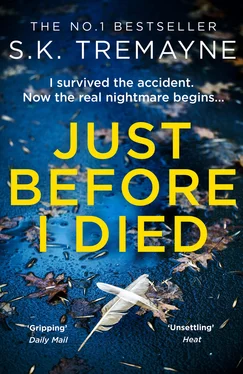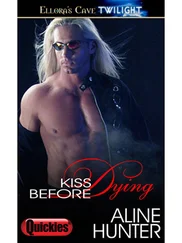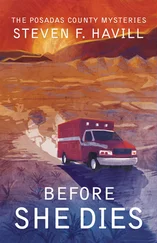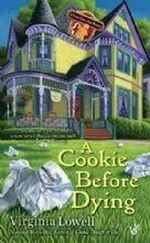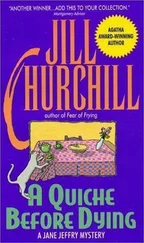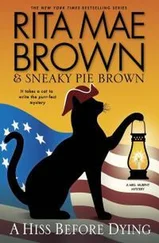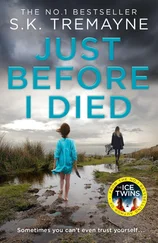Adam knelt beside the antique stone, stroked the cold granite as if it was the mane of an injured foal. Feeling the scratchy roughness of the lichen under his hands, feeling utterly helpless. Trying not to feel any more futile emotions. Trying to be practical.
Rubbing air between his raw fingers to keep out the winter chill, he stood up and began the long walk back to his Land Rover, and as he did so he made his decision about the cross. No matter how difficult, they would try to repair it. Because that was his job: to preserve this precious place, from the antiquities to the landscape to the chittering fieldfares at Soussons. To preserve as much of it as possible, and hand it on to the next generation, to Lyla, to Lyla’s children.
He would call the archaeology department at Exeter, get them to send an expert. Yes. It could be saved.
If only love were the same, he thought as he headed down the corpse road. If only love could be repaired, re-erected, restored. But once you smashed up loyalty, smashed up a loving family, that was it, wasn’t it? And what if that love was replaced by suspicion, even contempt, what did that do to you? Where did that lead you? In what dark, dark wood did you wake up? Perhaps the path you took might lead you even deeper into darkness.
Adam had nearly reached the Land Rover. He could see another kestrel, hovering in the cold air, framed by the pale green heights of Hurston Ridge. The bird was so beautiful, so perfect, quivering, elemental, doing precisely what it came here to do. Trembling with intent, with a fierce and irresistible desire to kill; to survive.
What did Kath do that night, and all the nights he was away? The question was simultaneously unapproachable and unavoidable. If he got to the answer he might get the measure of her guilt – and their marriage would be over. If he didn’t, he would seethe with speculative rage forever, and their marriage would be over.
And either way, Lyla ended up without a mother. So probably he should let it go; yet he could not. He loved her, he hated her, he loved her, he hated her. The confusion of emotion was like a wet moorland fire, making smoke rather than heat: it choked him. It killed his hopes, smothered things forever.
As he opened his car door, Adam remembered what his uncle used to say about the wilderness of Dartmoor, as they castrated the rams and dehorned the shrieking cows, as they took the frightened, lowing bullocks to the blood-slicked slaughterhouse, where the sheets of blood shone like a gorgeous lacquer, in luxurious swirls of scarlet and purple.
The moor is beautiful, lad, because it is dangerous.
Wednesday morning
Today is another inset day. A training day for teachers at Princetown Primary, when the kids get a day off. These days come around every so often, and it means that one of us – Adam or me – has to clock off work, to look after Lyla, one-on-one. It’s always intense, because Lyla has no proper friends; play-dates are out of the question.
But I still, usually, look forward to the chance to bond with her. To take her out on the moors, go for a summer swim, or autumn horseriding. But today is dank, and very chilly. It might even snow.
And my mind is elsewhere, and perhaps Lyla senses it. I am thinking about the hag stones left on the window ledge at my office. Could be it really was a hiker who set them down for a moment, and forgot. Could be it was kids having a laugh. But did they know the stones symbolized the driving away of witches? And why did they choose my office?
As I pensively clear the breakfast plates, my daughter kicks the table leg. Kick kick kick. Kick kick kick. She wants her mother’s attention.
And she deserves it.
‘What can we do, Mummy?’
‘I don’t know, darling, it’s a horrid old day. Something indoors? Like Castle Drogo?’ Kick.
‘It’s nice there, Mummy, but they don’t like dogs. Can we please do something else?’ She looks at me yearningly. ‘With Felix and Randal?’
I struggle to think. Look at a good map or a detailed guidebook and there are so many enticing places on Dartmoor, so many places with fairytale names – the Lost Crosses, Hameldown Daggar, Quintin’s Man – but today I am not enticed. Lyla needs to be entertained, diverted, though. I don’t want her spending the entire day lonely, lost in books. Not again.
An idea forms.
‘I know,’ I say, with a studied brightness, ‘Let’s go somewhere to see the standing stones you like.’
Her face brightens: she loves Dartmoor’s ancient circles and menhirs.
‘Merrivale? Scorhill?’
‘No,’ I say, slightly mischievously. ‘Somewhere you haven’t been before.’
She beams with delight. ‘Where? Tell me!’
‘Hah. No.’
‘Tell me, Mummy!’
‘Get ready, and I’ll make a picnic and we’ll go on a mystery tour! Put your boots on, and a coat. Everything else is fine.’
My daughter looks down at herself: she’s wearing a pair of black jeans, and a grey shirt, with a yellow pullover. She always mixes up colours wildly, I’m not sure she understands how clothes go together, yet she usually gets away with it, with her father’s blue eyes, his pale, nearly Slavic cheekbones, and that dark, dark hair. That beauty. I remember the boy I saw in the pub when I was seventeen, the boy I have loved ever since, the blue-eyed boy who gave me this blue-eyed girl. Adam Redway, my childhood sweetheart.
‘Do I really need boots? I hate wellies, they’re scratchy.’
‘Yes, you do. It will be wet in the bogs, and muddy. So go and get your things and I’ll pack some sandwiches.’
‘Peanut butter? So it’s a Special Occasion!’
I laugh. Lyla laughs. Whenever we go on a jaunt we always take peanut butter sandwiches: the comic predictability is a family in-joke. Jumping up from her chair, Lyla runs out of the kitchen, shouting out to Felix and Randal, who are slumbering in the living room, ‘Felix! Randy! Going on a walk! Big huge walk!’
I hear her scamper upstairs and the dogs canter after her, their claws skittering on the wooden steps.
Ten minutes later I’ve packed a hasty picnic in a bag, dropped the bag in the car boot, the dogs are jumping in the back seat, on either side of Lyla, and I have the key in the ignition. We’re having a day away from Huckerby Farm. My intent is Grey Wethers, a pair of poetic stone circles on the far eastern edge of the moor. Merely getting there will be a high adventure. It will take up the whole day. A good day outdoors with the dogs, even if the cold and gloom persists.
As I reverse the car, Lyla says, from the back seat, ‘You know … I saw a man.’
I trundle the car down the lane, towards what passes for a road in remoter Dartmoor. ‘Sorry, darling?’
‘I saw a man.’
The tension tightens inside me. I slow the car to hear my daughter better. ‘When, darling, what man?’
I’m looking at her in the mirror, but her face is averted. She is tickling Felix behind his ear. For a long while she says nothing.
‘Lyla?’
I drive at about five miles an hour through the squelch of a wintry Dartmoor day, over tiny medieval bridges never meant for cars.
At last she says, ‘It was a man that you know. I saw him at Huckerby. Near Huckerby.’
Who can she mean? It seems important but I don’t know why. She could be referring to anyone; she might be recalling a dream.
‘When, Lyla-berry? And what did he look like?’
‘Two or three times. I don’t know, he was far away. He looked …’ She squirms, ‘He looked a bit like Daddy. A lot like Daddy. And I think he was there the night you went to …’ Her voice is trembly. ‘The night. That night. When you left me with Auntie Emma.’
Читать дальше
